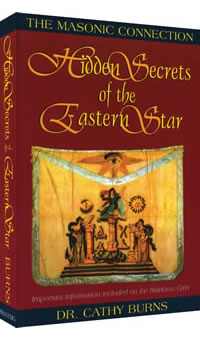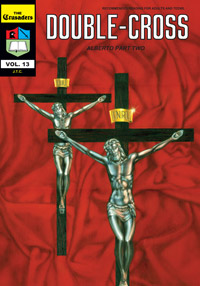Should A Christian Become A Mason?
By David W. Daniels
I once got a phone call from a gentleman who said (I'll clean up the speech), "I'm a Freemason. And thirty (something) years ago I said The Prayer to receive Jesus. And I don't have to do another [Bleep! Bleep! Bleep!] thing!" And he hung up. I'd say he was rather upset. But a lot of people have asked the question, "Should a Christian be a Mason?" That's why I wrote the book on it. Some people say, "Oh, that stuff you say against Freemasonry is wrong. It's a Christian organization."
Well then, what is Freemasonry? The first thing I found out is that almost nobody seems to know where they came from. There are some basic stories that I tell in the beginning of the book. At the beginning they were guilds of actual stone masons. But by the 1550s there weren't a lot of new projects. The secrecy made it seem special to rich people. And with the influx of money, it ended up becoming kind of a social club.
But in the later 1600s into the 1700s, Masonry started to change and occultic influences crept in. Part of it was through tinkering by the Jesuit Order at the College of Clermont in Paris. By 1717 when the first Grand Lodge was established in England, they had settled on certain degrees, and a basic story.
But by the mid-1800s came a larger-than-life Civil War general and hero named Albert Pike. His extensive reading and research into mysticism, Kabbala, occultism and such, made him the perfect choice to direct Freemasonry for years to come. Masonry started taking on a more occultic framework. The proofs of that are in the books that he wrote. And the most popular, of course, is Morals and Dogma, which used to be given to upper level Masons.
Now there is another book given out: A Bridge to Light, a kind of Morals and Dogma lite. For many Masons, this is the go-to book for authoritative information about basics and the different degrees of Masonry, and what they mean.
Most Masons have a Masonic Bible, usually the King James. But it's not there for people to place their faith in it and build their lives on it. It's used in most Masonic halls, on an altar. But Masons view it as nothing more than part of the "furniture of the Lodge." It's a place to set the Masonic compasses and square. Rather, Masons are supposed to swear on whatever holy book makes them feel obligated to keep their oaths. But in the Bible, Jesus said to "swear not at all" (Matthew 5:34).
Although they call the Bible "The Great Light in Masonry," they obviously don't take it seriously, because God's words reveal what's wrong with so much of the symbolism and rituals prescribed in A Bridge to Light and Morals and Dogma. You'll see in my book how these symbols and rituals come straight from the heathen religions forbidden by God. Masonry actually worships a one-size-fits-all God that almost any non-Christian can believe in. In other words, the God of Masonry is not the God of the Bible.
It goes against the spirit of Masonry for a member to take seriously the Great Commission, or to focus on living life as a Bible-believing Christian. Masonry is not concerned with the gospel. Masonry offers the temptation of secret knowledge, just as the serpent offered Adam and Eve. But in the Masonic story, the serpent is actually the guardian of knowledge. We call him Lucifer and Satan. But they don't reveal that until the Mason has reached the higher levels, if he is not too distracted to notice.
The Masonic god is a god of all beliefs. To them, the Bible is just one way to view God.
But the Lord Jesus Christ said, "I am the way, the truth and the life: no man cometh unto the Father but by me" (John 14:6). Masonry does not worship the Father in spirit and in truth (John 4:23).
The chapter on Baphomet in Should a Christian be a Mason? will show you who the real god of Masonry is, and why no serious soul-winner can fellowship with this subtle darkness.
- See more articles on related topics:
- Masonry
- Masonic Teachings
- Should Christians Be Masons
Other Articles from May/June 2018:
More on Masonry:
Products of Interest:
-

Should A Christian Be A Mason?
96 pages
Well-known masons, in their own words, show why no Christian should be a Mason. -

Hidden Secrets of the Eastern Star
496 pages
Dr Cathy Burns proves Masonry and Eastern Star are occultic. Secret passwords, symbols, and more. -

Smokescreens
96 pages
Jack Chick shows that the ecumenical movement isn’t designed to bring all Christians into unity. That’s just a smokescreen, hiding the Vatican’s real intent, to stamp out religious freedom and rule the world. -

Double-Cross
32-PAGE, FULL COLOR COMIC BOOK - Alberto Series Part 2 - After his salvation, Alberto is a hunted man. No Jesuit can leave his order alive! He reveals the infiltration of Protestant organizations, and warns of false ‘brethren’ in our midst.



